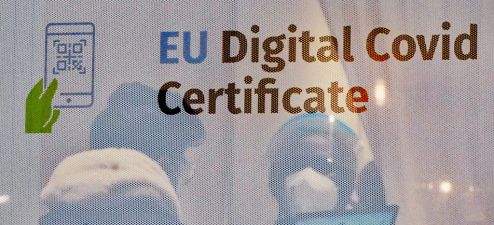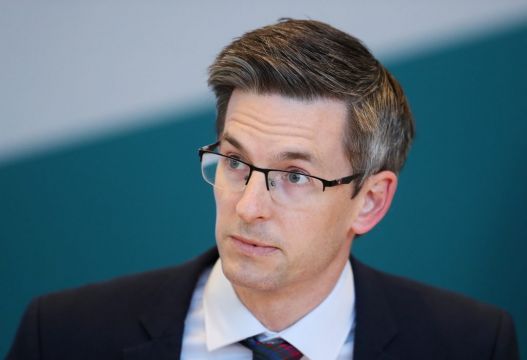The country’s deputy chief medical officer has defended changes in the rules around self-isolation for close contacts of Covid-19 cases, amid concern that they have become too loose.
Dr Ronan Glynn told the Today with Claire Byrne show on RTÉ Radio that the National Public Health Emergency Team (Nphet) had closely examined and balanced a number of issues before coming to their decision.
Other measures such as the use of high-quality masks, regular testing and the uptake of booster vaccines all formed part of the decision.
"The latest changes are in light of our evolving understanding of Omicron, the importance of boosters which is reflected in the guidance, the impact that we have seen on society broadly and our health service specifically over the past number of weeks and obviously what the ECDC said and also other international guidance,” he said.
“What we have sought to do is balance the various measures that we have. So I know some of the commentary has been specifically around the reduction and restriction of movements of self-isolation.
“But that in our opinion needs to be weighed against the need for testing and the need for higher grade masks and the need for people who are identified as cases or contacts to pay particular attention to who they are meeting with over the period where they may be potentially infectious."
Increased risk
Dr Glynn said that only way to ensure that there would not be transmission of the virus was to ask everyone to stay in their houses for a prolonged period of time through any infectious period.
"Any reduction in restriction or isolation of movements brings with it an increased risk of transmission. The ECDC recognises that. We have recognised that throughout but again some of the commentary around this was made prior to the actual measures being formally announced,” he said.
“I did hear a representative of the ECDC on the station yesterday and broadly speaking she felt the measures we have taken here were in line."
Dr Glynn reiterated the importance of other measures, including wearing high-quality masks and conducting regular testing.
"It is also about wearing the appropriate mask and doing regular testing where appropriate.
“Underpinning all of that from our perspective is that we focused on people who are boosted and people who are not. Because we can see in our data and in the international data that boosting gives significant protection against symptomatic infection.
“But more importantly it also gives significant additional protection against severe disease and hospitalisation. We are seeing that in the data in our own health system at the moment."
For adults who are identified as a close contact there is one question they have to ask themselves. And it is are they boosted or not?
Dr Glynn added that the rules and the guidance around close contacts did get difficult to follow and that a core part of the change involves "simplifying it down."
"There is a simple message for anyone who is identified as a case. It is that they isolate for seven days from the time they first developed symptoms and their first positive test if they are asymptomatic.
“That they wear well-fitted FFP2 medical grade face masks for 10 days and they only finish their period of isolation if their symptoms have largely resolved in the last two days.
“For adults who are identified as a close contact there is one question they have to ask themselves. And it is are they boosted or not?
“If they are boosted they don't need to restrict their movements but they still need to wear a high grade face mask for 10 days and they need to do a series of regular antigen tests.
“If they are not boosted they still need to wear the mask, they still need to do the regular tests but on top of that they need to restrict their movements for seven days."
Meanwhile, chief operations officer with the HSE, Anne O’ Connor, told The Pat Kenny show on Newstalk that Ireland on Friday has 1,023 confirmed Covid cases in hospitals, as opposed to 1,011 yesterday. 92 people are being treated in intensive care.
Ms O'Connor said about 70 per cent of patients in that number were hospitalised because of Covid-related illness. The other 30 per cent are patients who presented "perhaps with a broken leg" but were also found to have Covid.

Ms O'Connor spoke of the "huge impact" the country's cases of Covid are having on the overall hospital system.
She cited the example of Galway University Hospital which has 15 medical and surgical wards, three of which are now in effect "Covid wards" for Covid admissions.
"They have another four wards which are impacted by Covid where they have outbreaks. It is important for people to understand that from our perspective the hospital runs like a whole system. This hampers our ability to discharge people.
"For people who are in wards with outbreaks they can't go on to nursing homes. We don't have the same freedom to discharge."







